Tax planning is the process of organizing your finances in a way that minimizes tax liability while staying compliant with tax laws. It involves strategically timing income, deductions, and investments to maximize tax savings, both in the short and long term.
Key components of tax planning include:
- Income Deferral: Delaying income to a future period, when you might be in a lower tax bracket, reducing the taxes owed.
- Tax-Advantaged Accounts: Contributing to accounts like IRAs, 401(k)s, or Health Savings Accounts (HSAs) allows you to grow investments tax-deferred or even tax-free.
- Deductions and Credits: Identifying deductions (e.g., mortgage interest, charitable contributions) and credits (e.g., education, energy-efficient improvements) to lower taxable income.
- Capital Gains and Losses: Managing the sale of assets like stocks or property to minimize taxes on profits (capital gains) and offset gains with losses to reduce tax liability.
- Estate and Gift Planning: Using strategies like gifting or setting up trusts to reduce estate taxes and pass on wealth to heirs tax-efficiently.
- Business Tax Strategies: For business owners, utilizing deductions for expenses like equipment, travel, or healthcare can reduce taxable income.
Effective tax planning helps individuals and businesses optimize their finances, reduce the amount owed in taxes, and increase after-tax income. It requires staying informed about current tax laws and making adjustments as needed.
- Understanding tax brackets and deductions
- Tax-advantaged accounts (HSA, Roth IRA, 529 plans)
- Filing status and optimization
- Short-term goals (vacation, car purchase, home improvement)
- Long-term goals (buying a house, early retirement, education fund)
- Passive income strategies